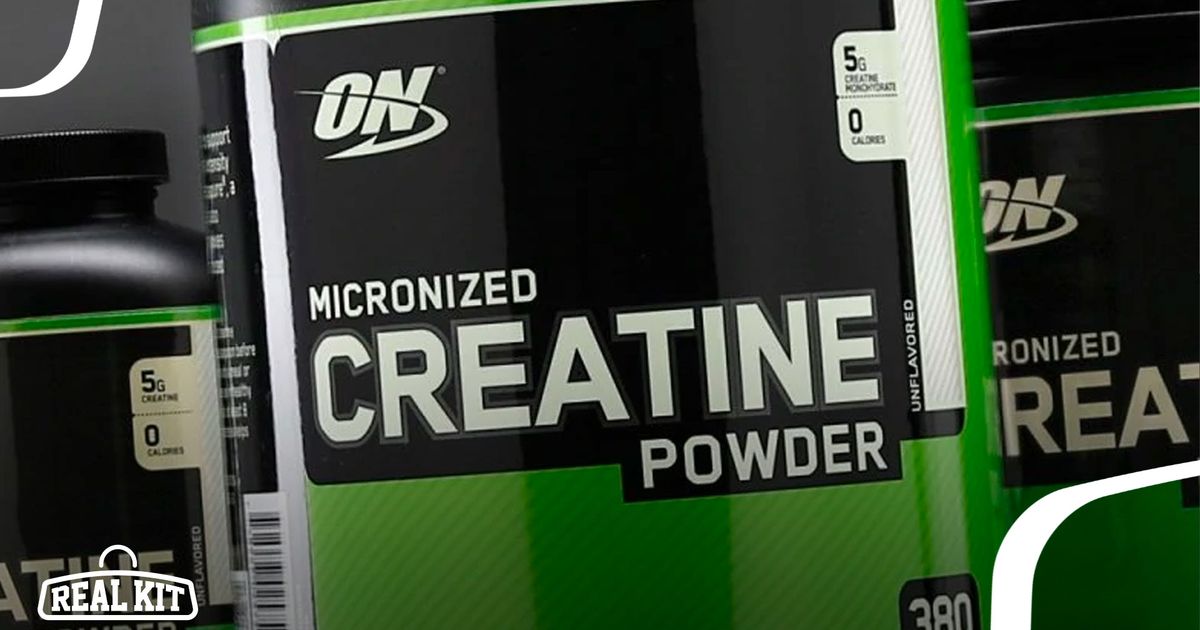Creatine is quickly becoming one of the most popular and well-researched supplements on the market, however, you still might be asking yourself what does creatine do?
Fortunately, we're here to help you get your head around the supplement so you can come to an informed decision on whether it is right for you and you're training.
To start with though, we feel it's important to understand what exactly creatine is. So, without further delay, let's dive in...
What Is Creatine?
According to Healthline, creatine is a substance naturally found in your muscle cells and is obtained mainly through protein-rich foods such as fish and red meat.
Its main purpose is to act as one of your body's key sources of energy for muscle contraction.
Around 95% of your body’s creatine is stored in your skeletal muscles in the form of phosphocreatine, while the remaining 5% is found in your brain, kidneys, and liver.
Phosphocreatine is important as it helps your body produce ATP, a critical molecule used to give your cells energy.
This is why many fitness enthusiasts and gym-goers take creatine supplements, like this one from Optimum Nutrition, as it has been linked to improved athletic performance.
If you're searching for something similar to this product from Optimum Nutrition, then check out our list of the best creatine supplements and protein powders right here.
How Does Creatine Work?
As previously mentioned, creatine helps in the production of ATP, so its primary role is to increase your phosphocreatine stores to refuel depleted cellular energy, particularly during high-intensity exercise.
In terms of the supplement itself, you'll typically find it in either a monohydrate or HCL form, meaning the creatine molecule is combined with either water or hydrochloride respectively.
This gives the supplement its solubility for your body to then absorb so it's ready to use to fuel your muscle contractions.
Creatine can also sometimes be micronised, meaning it goes through an additional process to reduce the size of the particles to increase their surface area for quicker absorption.
Micronised creatine is, arguably, the purest form of the supplement. In fact, some micronised offerings, like this one from Ultimate Nutrition, deliver 100% creatine monohydrate in one serving which should help maximise uptake.
What Are The Effects Of Creatine?
According to this study into the effect of dietary supplements on lean mass and strength, creatine is effective for both short and long-term muscle growth.
This is most likely down to it being linked to improving your strength, power, and athletic performance.
For example, one study into the effects of creatine on training found it increased strength by 8%, weightlifting performance by 14%, and participants bench press one-rep max up to 43%.
This is supported by research into creatine and performance which demonstrated that you can improve your training between 1–15% on average when taking creatine supplements.
A number of studies have also linked creatine to improved brain health and performance.
For example, this study into creatine supplementation and brain performance found a significant positive effect on both working memory and intelligence.
Ultimately, as shown above, creatine is one of the most well-researched training supplements on the market, which is one of the reasons it is deemed safe by the International Society of Sports Nutrition.
Read More: Best Pre-Workout Supplements Available Now





